Related Research Articles
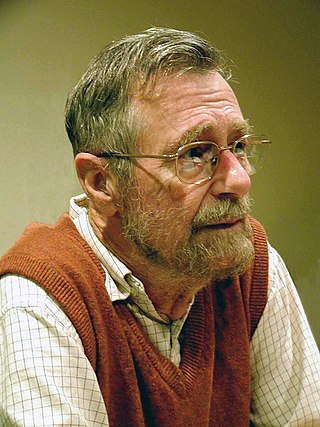
Edsger Wybe Dijkstra was a Dutch computer scientist, programmer, software engineer, mathematician, and science essayist.

Butler W. Lampson is an American computer scientist best known for his contributions to the development and implementation of distributed personal computing.

The University of Surrey is a public research university in Guildford, Surrey, England. The university received its royal charter in 1966, along with a number of other institutions following recommendations in the Robbins Report. The institution was previously known as Battersea College of Technology and was located in Battersea Park, London. Its roots however, go back to Battersea Polytechnic Institute, founded in 1891 to provide further and higher education in London, including its poorer inhabitants.
The Royal Radar Establishment was a research centre in Malvern, Worcestershire in the United Kingdom. It was formed in 1953 as the Radar Research Establishment by the merger of the Air Ministry's Telecommunications Research Establishment (TRE) and the British Army's Radar Research and Development Establishment (RRDE). It was given its new name after a visit by Queen Elizabeth II in 1957. Both names were abbreviated to RRE. In 1976 the Signals Research and Development Establishment (SRDE), involved in communications research, joined the RRE to form the Royal Signals and Radar Establishment (RSRE).
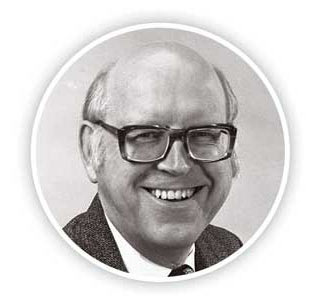
Allen Newell was an American researcher in computer science and cognitive psychology at the RAND Corporation and at Carnegie Mellon University's School of Computer Science, Tepper School of Business, and Department of Psychology. He contributed to the Information Processing Language (1956) and two of the earliest AI programs, the Logic Theorist (1956) and the General Problem Solver (1957). He was awarded the ACM's A.M. Turing Award along with Herbert A. Simon in 1975 for their contributions to artificial intelligence and the psychology of human cognition.
The Institute of Physics (IOP) is a UK-based not-for-profit learned society and professional body that works to advance physics education, research and application.

The British Computer Society (BCS), branded BCS, The Chartered Institute for IT, since 2009, is a professional body and a learned society that represents those working in information technology (IT), computing, software engineering, computer engineering and computer science, both in the United Kingdom and internationally. Founded in 1957, BCS has played an important role in educating and nurturing IT professionals, computer scientists, software engineers, computer engineers, upholding the profession, accrediting Chartered IT Professional (CITP) and Chartered Engineer (CEng) status, and creating a global community active in promoting and furthering the field and practice of computing.

Sir Anthony James Leggett is a British–American theoretical physicist and professor emeritus at the University of Illinois Urbana-Champaign (UIUC). Leggett is widely recognised as a world leader in the theory of low-temperature physics, and his pioneering work on superfluidity was recognised by the 2003 Nobel Prize in Physics. He has shaped the theoretical understanding of normal and superfluid helium liquids and strongly coupled superfluids. He set directions for research in the quantum physics of macroscopic dissipative systems and use of condensed systems to test the foundations of quantum mechanics.

Artur Konrad Ekert is a British-Polish professor of quantum physics at the Mathematical Institute, University of Oxford, professorial fellow in quantum physics and cryptography at Merton College, Oxford, Lee Kong Chian Centennial Professor at the National University of Singapore and the founding director of the Centre for Quantum Technologies (CQT). His research interests extend over most aspects of information processing in quantum-mechanical systems, with a focus on quantum communication and quantum computation. He is best known as one of the pioneers of quantum cryptography.

Henry Bolingbroke Woodward was an English geologist and paleontologist known for his research on fossil crustaceans and other arthropods.
Lewis Richard Benjamin Elton was a German-born British physicist and researcher into education, specialising in higher education.

Jerrold Eldon Marsden was a Canadian mathematician. He was the Carl F. Braun Professor of Engineering and Control & Dynamical Systems at the California Institute of Technology. Marsden is listed as an ISI highly cited researcher.
Hugh Christopher Longuet-Higgins was a British scholar and teacher. He was the Professor of Theoretical Chemistry at the University of Cambridge for 13 years until 1967 when he moved to the University of Edinburgh to work in the developing field of cognitive science. He made many significant contributions to our understanding of molecular science. He was also a gifted amateur musician, both as performer and composer, and was keen to advance the scientific understanding of this art. He was the founding editor of the journal Molecular Physics.

Jameel Sadik "Jim" Al-Khalili is an Iraqi-British theoretical physicist, author and broadcaster. He is professor of theoretical physics and chair in the public engagement in science at the University of Surrey. He is a regular broadcaster and presenter of science programmes on BBC radio and television, and a frequent commentator about science in other British media.

Alan George Smithers is an English academic psychologist and public policy advisor best known for his research and publications in the field of education.
Wilson Sibbett is a British physicist noted for his work on ultrashort pulse lasers and Streak cameras. He is the Wardlaw Professor of Physics at St Andrews University.
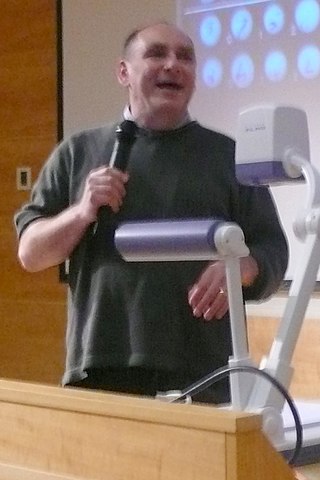
Jonathan Andrew Crowcroft is the Marconi Professor of Communications Systems in the Department of Computer Science and Technology, University of Cambridge, a visiting professor at the Department of Computing at Imperial College London, and the chair of the programme committee at the Alan Turing Institute.
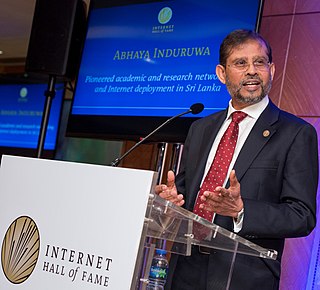
Abhaya Induruwa is the inaugural Professor V K Samaranayake Endowed Professor of Computing, University of Colombo School of Computing, Sri Lanka. Having served as the Director of Cyber Innovation Hub he recently retired from the Canterbury Christ Church University in the United Kingdom where he researched into security and forensic investigation of Internet of Things (IoT). Currently he is engaged in promoting IoT in digital agriculture as a disruptive technology, primarily in developing countries, leading to smart agriculture resulting in higher yields in food production. Induruwa is considered the father of Internet in Sri Lanka.
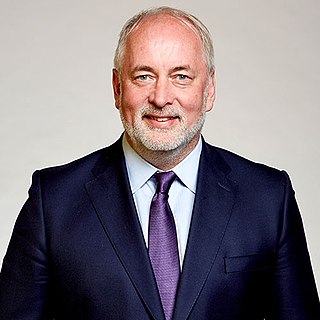
Nicholas Robert Jennings is a British computer scientist who was appointed Vice-Chancellor and President of Loughborough University in 2021. He was previously the Vice-Provost for Research and Enterprise at Imperial College London, the UK's first Regius Professor of Computer Science, and the inaugural Chief Scientific Adviser to the UK Government on National Security. His research covers the areas of AI, autonomous systems, agent-based computing and cybersecurity.

The University College of Science, Technology and Agriculture are two of five main campuses of the University of Calcutta (CU). The college served as the cradle of Indian sciences by winning the Nobel Prize in Physics in 1930 and many fellowships of the Royal Society London.
References
- ↑ "Profile Interview: Professor Alan Woodward". 18 December 2020.
- ↑ "Prof Alan Woodward | University of Surrey".